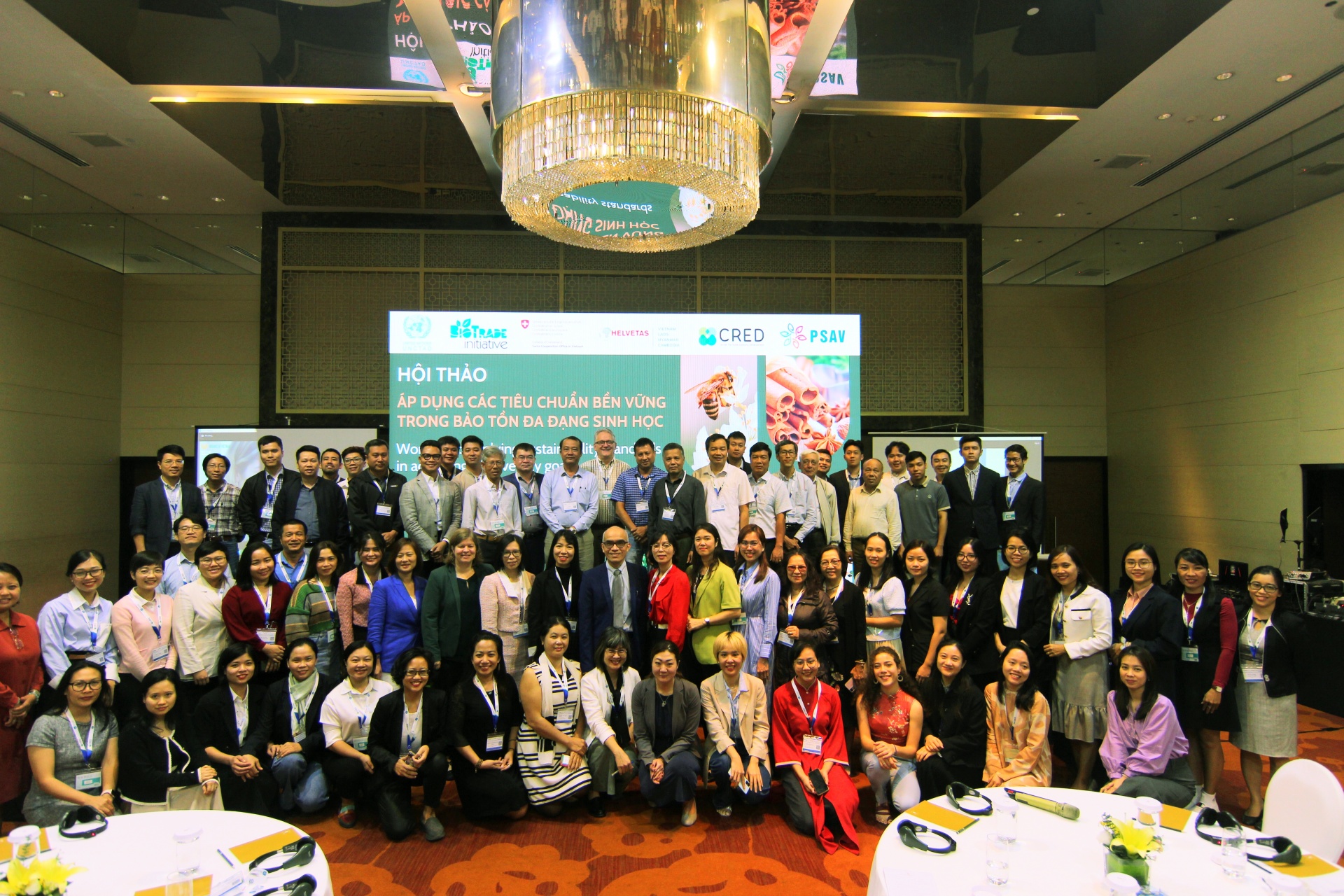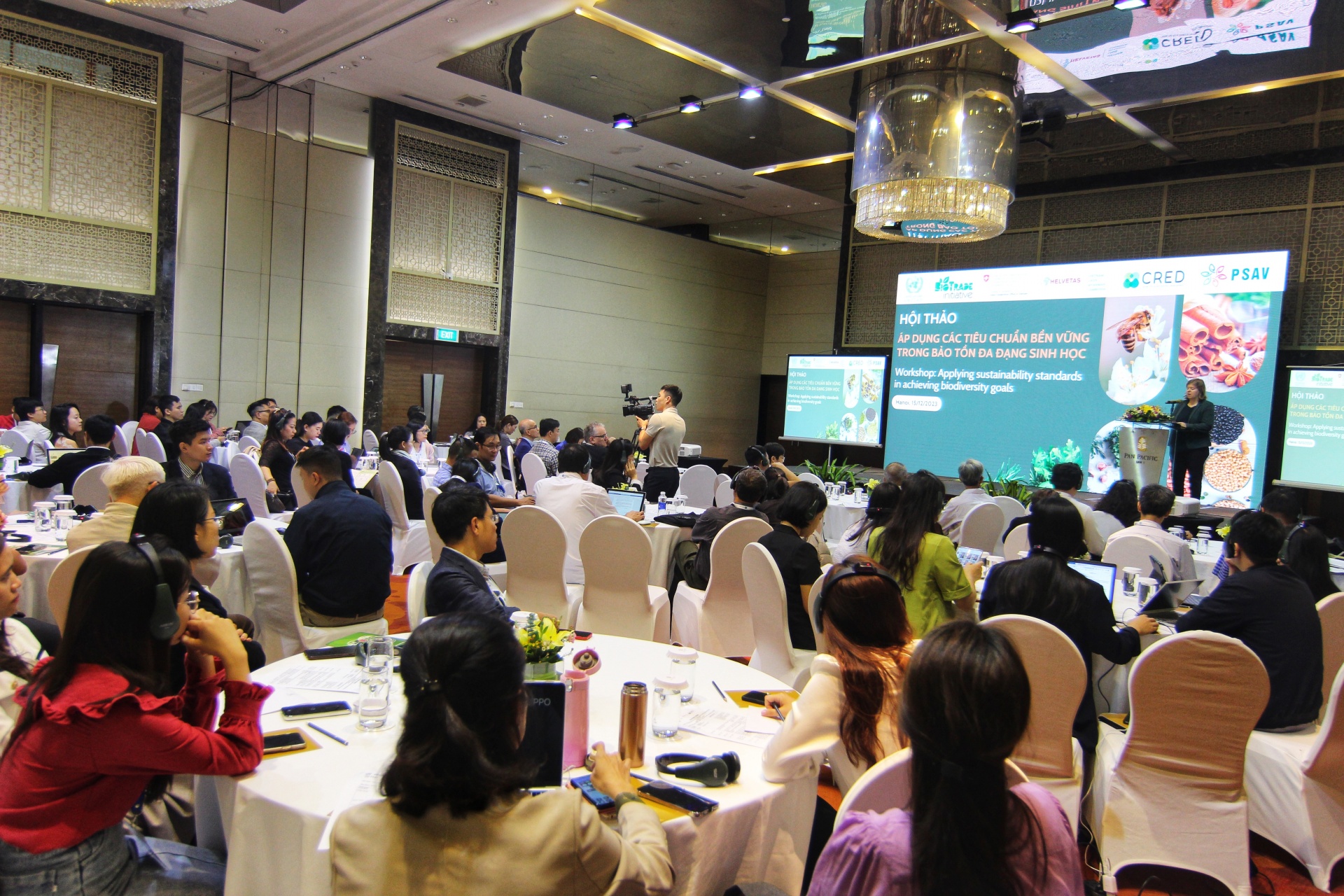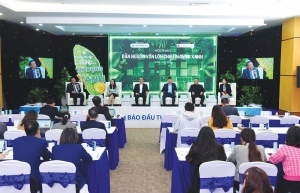Applying sustainability standards in achieving biodiversity goals
The workshop "Applying sustainability standards in achieving biodiversity goals" by the Centre for Rural Economy Development collaborated with the United Nations Conference on Trade and Development (UNCTAD) to organise in Hanoi on December 15.
 |
The presentations and reports at the workshop covered good practice examples for sustainable agriculture covering the coconut, rice and cinnamon sector, among other things, and provided updates on regulations and shared knowledge on international standards as effective tools for the conservation and sustainable use of biodiversity and for supporting livelihoods.
The ensuing discussion addressed challenges and opportunities for the application of VSS standards and led to a set of recommendations and proposed solutions to facilitate the strengthening of public-private partnerships to promote the integration of sustainability standards in supply chains and the development of national legal frameworks that allow the use of VSS in the certification process.
The workshop was conducted under the Global BioTrade Facilitation Programme with the financial support from the Swiss State Secretariat for Economic Affairs.
The concept of Biotrade was first coined by UNCTAD in 1996. Since then, it has been introduced and developed in Vietnam since the 2010s and has become the core transaction of the ecosystem where Vietnamese exporters can develop sustainable supply chains and reach potential markets through efficient trade promotion and value chain services.
Biodiversity loss constitutes a major global threat, as reported by the World Economic Forum. Unsustainable trade and consumption of products and services derived from biodiversity represent a contributing factor to this decline of diversity.
 |
VSS are norms and standards used to ensure that products are harvested, produced, processed, or transported in accordance with specific sustainability metrics. These metrics include environmental impact, basic human rights, labour standards, and gender equality.
Currently, there are over 500 VSS that apply to key exports of many countries, such as coffee, tea, bananas, cocoa, palm oil, timber, cotton, and organic agri-food.
The 2030 Agenda for Sustainable Development identifies international trade as a means of achieving inclusive economic growth and reducing poverty.
VSS are increasingly being included in trade agreements to promote sustainable development and good governance. They can be an effective tool to encourage governments and companies to adopt practices that align with environmental, social, and economic objectives.
What the stars mean:
★ Poor ★ ★ Promising ★★★ Good ★★★★ Very good ★★★★★ Exceptional
 Tag:
Tag:
Related Contents
Latest News
More News
- Bac Ai Pumped Storage Hydropower Plant to enter peak construction phase (January 27, 2026 | 08:00)
- ASEAN could scale up sustainable aviation fuel by 2050 (January 24, 2026 | 10:19)
- 64,000 hectares of sea allocated for offshore wind surveys (January 22, 2026 | 20:23)
- EVN secures financing for Quang Trach II LNG power plant (January 17, 2026 | 15:55)
- PC1 teams up with DENZAI on regional wind projects (January 16, 2026 | 21:18)
- Innovation and ESG practices drive green transition in the digital era (January 16, 2026 | 16:51)
- Bac Ai hydropower works stay on track despite holiday period (January 16, 2026 | 16:19)
- Fugro extends MoU with PTSC G&S to support offshore wind growth (January 14, 2026 | 15:59)
- Pacifico Energy starts commercial operations at Sunpro Wind Farm in Mekong Delta (January 12, 2026 | 14:01)
- Honda launches electric two-wheeler, expands charging infrastructure (January 12, 2026 | 14:00)



























 Mobile Version
Mobile Version